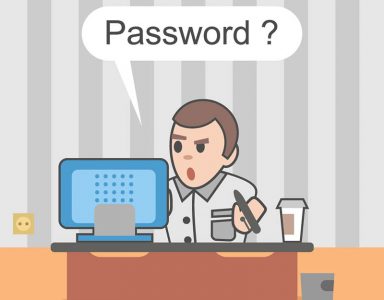What Is a Scam vs. What Is a Hack?

A young man in a hoodie, typing furiously on a laptop. If you believe the media coverage, this man is a hacker, and he's responsible for all the incidents that involve personal data falling into the wrong hands. But is this really the case?
Table of Contents
What is hacking?
Look it up in the dictionary, and you'll see that hacking is the act of gaining unauthorized access to information on a computer system. There are nuances that can't be covered by a single dictionary entry, though.
Nowadays, for example, people can go on an online forum, and, after shelling out a few hundred dollars worth of cryptocurrency, they can get tools that scrape people's passwords and rent a botnet that'll send these tools to innocent victims. Do these people actually hack into anything? Not really. They're clicking buttons, much like you, the regular user, do in your everyday life. They're just too lazy to go to work and earn their living the legal way.
Hacking can also be done for our greater good. The so-called white hat hackers spend countless hours trying to find security holes before the bad guys do. When they spot a vulnerability, they use their incredible skills to help software vendors fix the problem, thus making the Internet a safer place.
The skill is what sets the hackers apart from the rest of the criminals on the web. To hack into something, you need to have a deep understanding of how it works, and believe it or not, many of the people conducting illegal activities on the Internet don't have that knowledge. Those people aren't hackers, they're scammers.
How do online scams work?
The Internet completely transformed the way the world works. Unfortunately, it also gave scammers a variety of new ways of swindling people out of their money. It's not just money they're after, either. The World Wide Web presented scammers with a way of monetizing on your data as well.
Scammers are nothing if not inventive, and they keep coming up with new, clever ways of gaining access to information they shouldn't have access to. Sometimes, the mechanisms are extremely elaborate, and sometimes, they're very simple. Internet scams range from the painfully familiar Nigerian prince hoaxes, through "Hot singles in your area" ads, to multi-step complex phishing attacks targeting high-value individuals. Different scams work differently, but they all rely on one and the same thing – your failure to spot that something's amiss.
In other words, if we have to recap, hacking attacks are successful when the criminal knows how a particular computer system works. Scams are successful when the perpetrator knows how the human brain works.
What can you do to protect yourself against hacking and scams?
With hacking attacks, some things are outside your control. Regular users can't fix security vulnerabilities. Developers can do that. What you shouldn't forget, however, is to keep your software up-to-date. That's the simplest way of ensuring that if someone tries to hack a program you're using, you won't be a victim. There's a ton of other sound advice out there, especially when it comes to password management, another essential part of your everyday online life.
Avoiding scams could be tricky. While some schemes are pretty obvious, others are extremely well thought through. On the whole, there is no magic bullet, but it's fair to say that the more vigilant you are, the lower the chances of taking the bait. Don't trust anything on the Internet blindly, even if it looks legitimate. If you must give your personal information, make sure that whoever is keeping it is an established, trusted organization.
The Internet is not a safe place by any means. Yet, it's a place most of us visit every single day. Knowing the risks and bearing them in mind is your best bet if you want to stay safe.








